The write choice: With NASA pens, regular pencils and smart accessories, William Penn jots up Rs 95 crore revenue this year
It began as a stationery store 16 years ago, but Bengaluru-based William Penn has survived the invasion of technology by offering regular pens and accessories like smart pens and wallets.

Come April, and US-based pen brand Fisher Space is introducing a new range in India – one you might remember from the Bollywood hit 3 Idiots, when ‘Virus’ (Boman Irani) tells Rancho (Aamir Khan) about the anti-gravity pen used in space. The company is the official pen maker for NASA, the only one to make pens that don’t rely on gravity to get the ink flowing.
Now, this range is brought to India exclusively by Bangalore-based stationery giant William Penn.
In a digital era when mobile phones and tablets rule the world, William Penn is standing strong, 16 years after inception as a small stationery store. What began with pens and pencils has grown into a chain of stationery – from desk accessories to “smart pen” and “smart wallet”, innovation has led the company to 15 percent annual growth through the years. This fiscal year, their total GMV is Rs 95 crore, and the firm is about to strengthen its hold on ecommerce in the coming year.
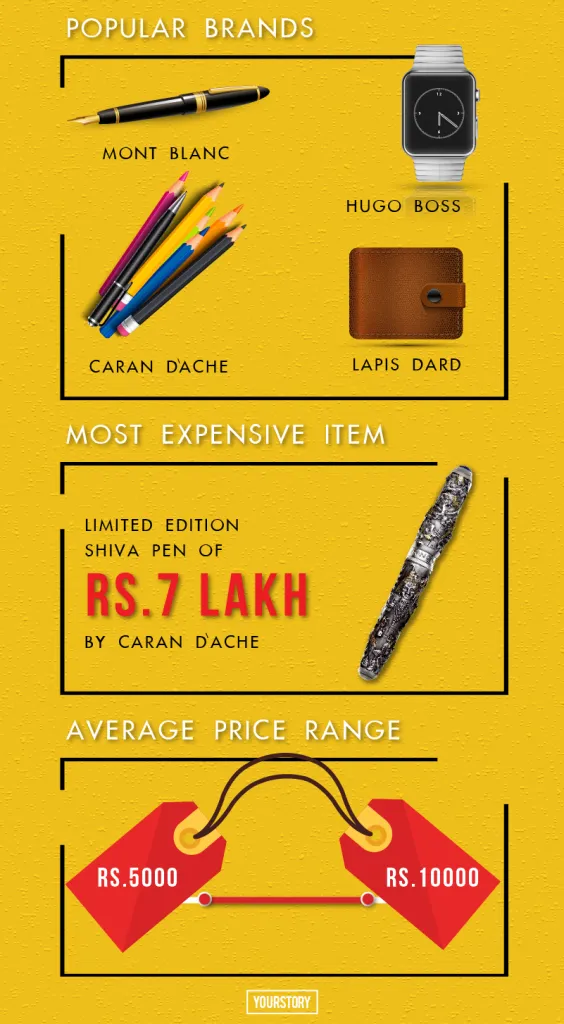
In a chat with YourStory, Founder and MD Nikhil Ranjan, 39, talked about his journey, the ups and downs, and why he thinks that despite the intrusion of technology in our everyday lives, writing and writing instruments are making a strong comeback.
Before the digital surge
A Mysore-based mechanical engineer, Nikhil realised that IT was not his cup of tea while working at IBM in Bangalore. Nikhil’s family had a stationery manufacturing business, and he opened a stationery shop in 2002 with many brands, including international ones, in Koramangala’s plush neighbourhood.
Its name stood out. William Penn is named after the founder of Pennsylvania state in the US with the same name– a Quaker of 17th century who migrated from the UK and played a vital role in the unification of the States. “We wanted a name with history,” Nikhil smiles.
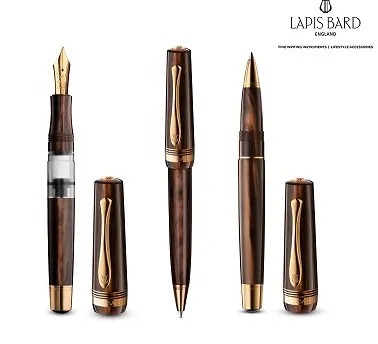
Following the success of the store, he opened another one in Forum Mall, this time only for pens. Promotional activities like a pen fair, calligraphy demo, handwriting analysis classes by the police department, expert talks on pen making, and films on history of pen making, grabbed attention. “Schools were sending kids to us to learn about pens and improve handwriting,” Nikhil recollects.
Growing the team
Why the decision to start up alone? Nikhil’s answer throws light on entrepreneurship before a decade: “There was no need for a co-founder. It is only today that we see a co-founding team! In those days, we had no pressure to scale up (unlike the VC-funded startups today.) Starting up was not cool then; now there are more opportunities and definitely more funding.”
Expanding slowly, William Penn is now a team of more than 300 people with a corporate gifting division, in-store, and an ecommerce division that takes care of sale on their own website as well as on Flipkart, Myntra, Amazon, and Paytm. Today they have 30 stores across 10 cities, including Nikhil’s hometown, Mysore.
One of their main focus areas in 2018 is omnichannel commerce. Online channels offer wider range, while offline provides touch and feel. Innovation is on to combine both channels.
Nikhil adds that today William Penn enjoys the best of both worlds – they are veterans and youngsters at the same time. “At 39, I have 16 years of experience; we continue to innovate and have a young team just like a startup,” he says.
The power of the written word
During the digital surge when mobile phones replaced pens, other stationery was catching on. In 2014-15, William Penn made the best of things by expanding business and lifestyle categories like desk accessories, personal accessories, and smart business accessories like the Moleskine notebook (which transfers writing on it to your phone).
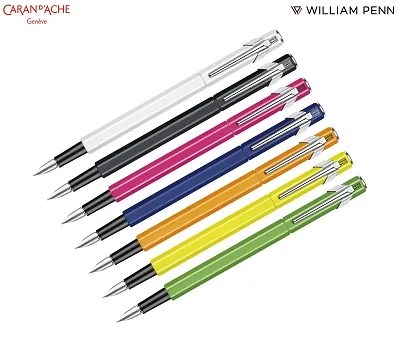
Sure, people have been writing less over the past few years – especially the urban upper-class population which forms William Penn’s customer base. But Nikhil strongly believes that they are now coming back.
“People have been asking me ‘you are running a store for pens. But do people even write anymore?’ I say, yes people are writing less. But writing is not going away. Today I can confidently say that writing is back. Of course, we have WhatsApp, text messages, email etc but writing is an essential part of life. A written letter is any day better than a text message,” he says.
Nikhil adds that pencils are also growing more popular now. “Fountain pens are also back in vogue, as they are easier to take care of today - with cartridges, converters etc. They are not as messy as they used to be.”
In fact, William Penn did a campaign for Valentine’s Day: express your love to anyone (a spouse, friend, or family) by writing a letter to them at the William Penn store, and they would post it.
Practical luxury
William Penn imports writing instruments and accessories from around the world (including from Indian distributors). William Penn’s in-house brand Pennline was launched in 2016 for writing instruments and accessories like a paper organiser with a built-in pen drive and power bank. Designers from NIFT and NID form their in-house design team, and they manufacture in India, China, and Taiwan.
Soon, Pennline will be introducing organisers with changeable paper inserts and vintage organisers. Nikhil believes that consumer want their products to be well made and useful.
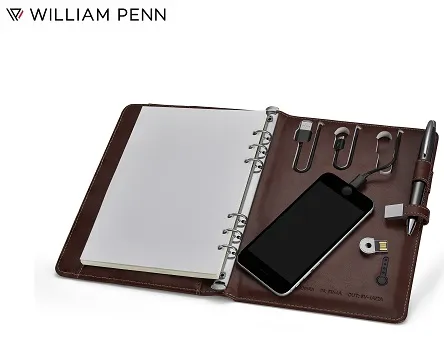
“We are innovating with other brands as well as our own for travel and business acc essories. Of course, the core is writing instruments,” he says.
William Penn has exclusive tie-ups with about 12 international (mostly European) brands, and mainly targets men. Their celebrity customers include actors Shah Rukh Khan, Hrithik Roshan, Amitabh Bachchan, Vinay Pathak, Kamal Hassan, singer Usha Uthup, and Finance Minister Arun Jaitley.
In two months they are launching 2-in-1 pen – one that combines a ball point and fountain pen (with an interchangeable front section) - and smart wallets/pens, which can track your phone. They are also presenting a new brand, Uzi, which is a pen that also functions as a weapon for self-defence.
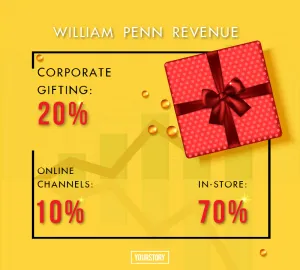
Too much technology?
At PaperWorld, the recent stationery trade fair in Germany, Nikhil noticed a resurgence of analogue devices even among millennials. He said the number of stores selling vinyl records and turntables have also gone up in the past couple of years.
“Even fountain pens are making a major comeback, with a double-digit percentage. Manufacturers can’t take any more orders as they are swamped. So are board games like Settlers of Catan. Millennials love writing; they are enjoying physical things rather than downloading from iTunes.”
Nikhil foresees that writing and pen will come back in the West in 2-3 years. “There is too much tech now. Western youngsters follow ‘bullet journaling’ with diaries and to-do-list in bullets. It will happen in India too,” he says.
Nikhil is confident that William Penn has no direct competition. “We are still in the niche segment, not mass stationery. This is a discretionary category, and this is where growth is. People are conscious about what they use,” he says.
They sure are, it seems. Because, when asked about his fondest memory, Nikhil recollects a recent flight journey in which he got to talk to a woman sitting next to him in the flight. “When I told her what I do, she thanked me! She apparently bought a pen and got back in touch with her father who had been estranged for two years, after she wrote a letter to him.”
What else do you need to know about the power of written word?







